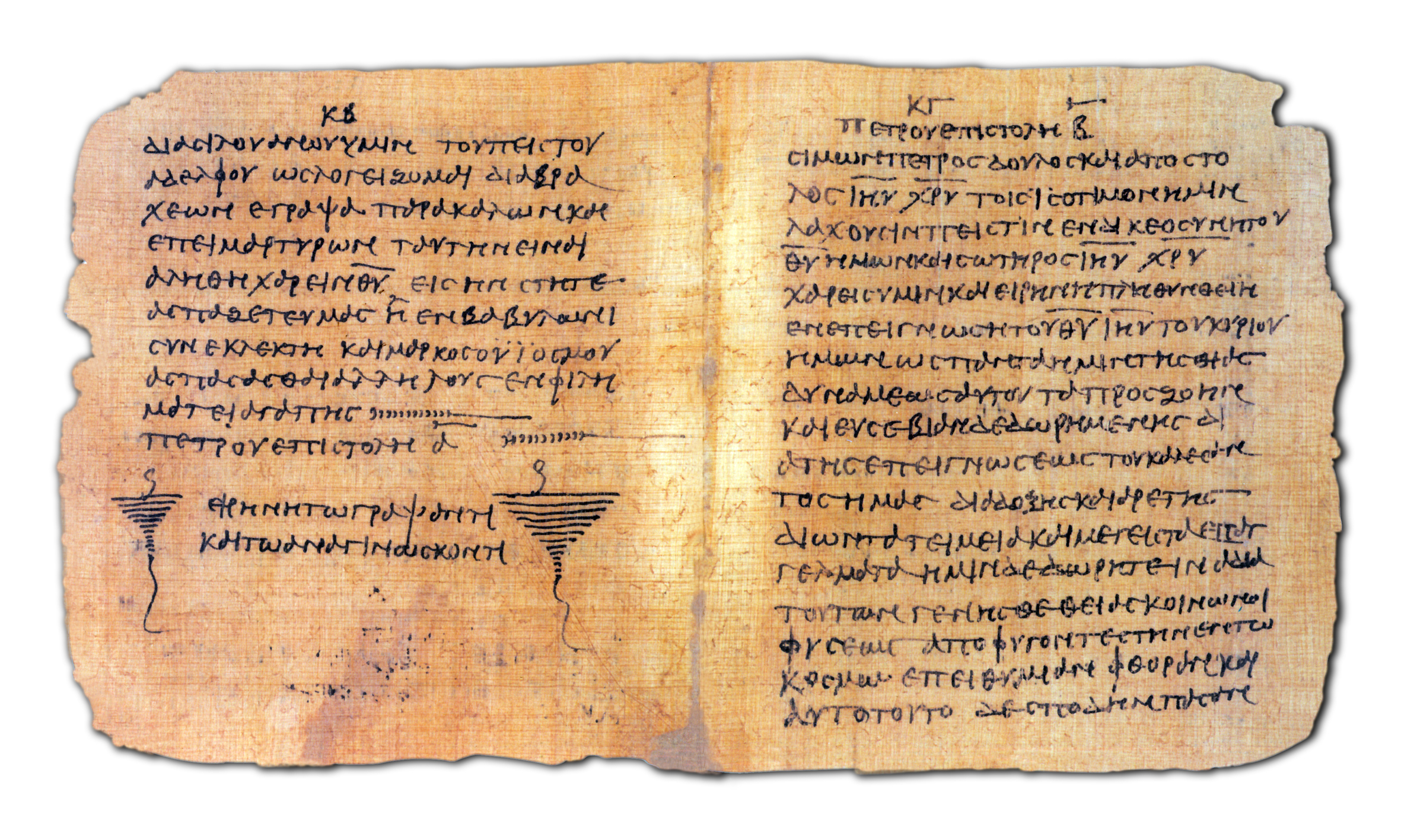|
Textual Variants In The First Epistle Of Peter
Textual variants in the First Epistle of Peter are the subject of the study called textual criticism of the New Testament. Textual variants in manuscripts arise when a copyist makes deliberate or inadvertent alterations to a text that is being reproduced. An abbreviated list of textual variants in this particular book is given in this article below. Most of the variations are not significant and some common alterations include the deletion, rearrangement, repetition, or replacement of one or more words when the copyist's eye returns to a similar word in the wrong location of the original text. If their eye skips to an earlier word, they may create a repetition (error of dittography). If their eye skips to a later word, they may create an omission. They may resort to performing a rearranging of words to retain the overall meaning without compromising the context. In other instances, the copyist may add text from memory from a similar or parallel text in another location. Otherwise, t ... [...More Info...] [...Related Items...] OR: [Wikipedia] [Google] [Baidu] |
First Epistle Of Peter
The First Epistle of Peter is a book of the New Testament. The author presents himself as Peter the Apostle. The ending of the letter includes a statement that implies that it was written from "Babylon", which may be a reference to Rome. The letter is addressed to the " chosen pilgrims of the diaspora" in Asia Minor suffering religious persecution. Authorship The authorship of 1 Peter has traditionally been attributed to the Apostle Peter because it bears his name and identifies him as its author (1:1). Although the text identifies Peter as its author, the language, dating, style, and structure of this letter have led most scholars to conclude that it is pseudonymous. Dale Martin 2009 (lecture). . Yale University. Accessed 22 July 2013Lecture 24 (transcript)/ref> Many scholars argue that Peter was not the author of the letter because its writer appears to have had a formal education in rhetoric and philosophy, and an advanced knowledge of the Greek language,Achtemeier, Pa ... [...More Info...] [...Related Items...] OR: [Wikipedia] [Google] [Baidu] |
